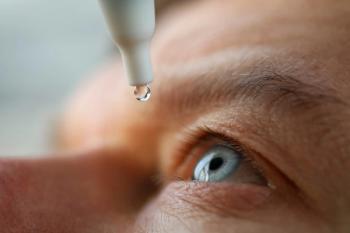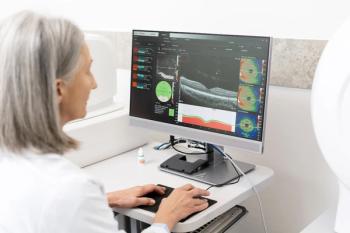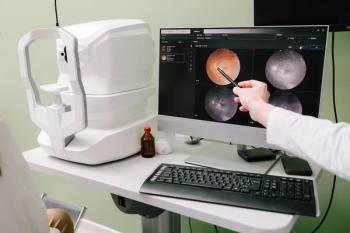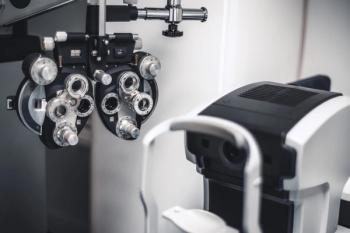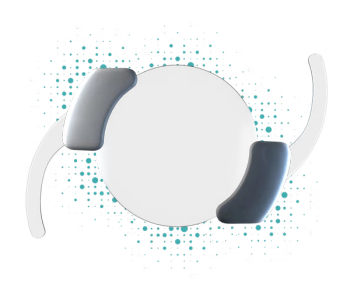
AOA 2024: Recognizing pediatric patients experiencing adverse childhood experiences
Ruth Shoge, OD, MPH, FAAO, outlines what it means to identify ACES in pediatric patients.
Whether in the chair or in the community, Ruth Shoge, OD, MPH, FAAO, states that it is important to recognize pediatric patients that may be experiencing adverse childhood experiences, as they may result in negative impacts on the eye. She lectured on the subject at this year's AOA's Optometry's Meeting.
Video transcript
Editor's note: This transcript has been lightly edited for clarity.
Ruth Shoge, OD, MPH, FAAO:
Hi everyone. My name is Ruth Shoge. I'm associate professor at the University of California Berkeley Herbert Wertheim School of Optometry and Vision Science. I've at AOA's Optometry's Meeting and I did a lecture on adverse childhood experiences (ACES) and their relationship to systemic and ocular health. Adverse childhood experiences have been studied for a few decades now, and can be classified as 3 different types: neglect, abuse, and household dysfunction. And within those 3 types, we look at 10 different types of experiences. What we've learned in the research over the years is that there's a direct connection to the number of adverse childhood experiences one may have in any of these categories, and to chronic illnesses later on in adulthood. And so what I was able to explore with the audience and discuss is this tie into systemic health and of course, how that relates to our ocular health. And anything that happens in the body can manifest in the eye.
What are opportunities are in interceding in a young child's life? Well, we see them present for an exam, different questions that we can ask, that may allow us to provide resources to the families to help connect them, either economically, healthcare wise, and other ways that we can start to think about how we mitigate these childhood experiences, these ACES to help facilitate better health in the long run as an adult.
So some of the things that we can think about doing and some of the things that I might think about when I've seen a child in practice is if there's a history where the child is not performing at where they should be in school. Of course, that could be a variety of reasons, so as a pediatric optometrist, I'm going to do a thorough exam. But I'm also going to ask about what's happening in the educational program. And there are surveys now that we can embed some of these ACE questions that asked about household dysfunction, that ask about neglect, that we can start to collect this information so that we have a better overall profile, about perhaps what's happening in the home of the child, and how that could be related to how they're doing in school, how they're showing up in our exam, and what we can start to think about doing to put in place, things that could help the child. So if I need to be the first contact person that will communicate with the pediatrician, communicate with the educators at the school about what the needs of the child's are, beyond just vision. And that can start getting the conversation started and get the ball rolling with making sure that the child and the family have access to resources that could potentially help with this outcome.
So I began my journey learning about ACES by reading Dr. Nadine Burke Harris's book on Adverse Childhood Experiences. And I think that would be a great place to start to learn more about this topic. She also has a TED talk that you can find on YouTube. And that is a great way to begin that journey of understanding ACES and how it relates to our practice as optometrists. And not only that, but also remembering that, as someone who interacts with children at some point in our stage of career, we are considered mandatory reporters. So if we suspect abuse, we do have to report that. And so thinking about the social context, not just reporting that news, but are there community resources that we can then begin to share with the family that would help to mitigate some of the effects of the abuses. So it feels like in such a big topic. What we can do might be limited, but there are some things that we can do to support our children and our communities.
So even if you don't see children in your practice, there are children in your community. And so maybe you volunteer at your child's school for different things. You're in different religious institutions, and you might interact with children in that regard. So not everybody is into pediatrics, I totally get that. But everybody is in a community. And so building up a community, making sure we are perhaps that one adult in a child's life that sees them, that hears them, that cherishes the experiences that they're having, and are invested in their future. And being able to demonstrate that either through mentorship, through other leadership and community building activities that you can engage with in your community, is really gonna make a difference. So it's not always about being in the exam chair and seeing these folks professionally, but how are you interacting with your community as a whole?
When we think about ACES, things that keep in mind: Is their neglect in the home? Is there household dysfunction, is there abuse.? What are the resources available in our community? Is this something that we are suspecting it's going on? We have to report it because again, that's part of our duty to do so. And then finally, how do we invest in these children to ensure that they are healthy, healing, productive members of our society, and can hopefully reach back to the next generation of children and put an end to this cycle?
Newsletter
Want more insights like this? Subscribe to Optometry Times and get clinical pearls and practice tips delivered straight to your inbox.


